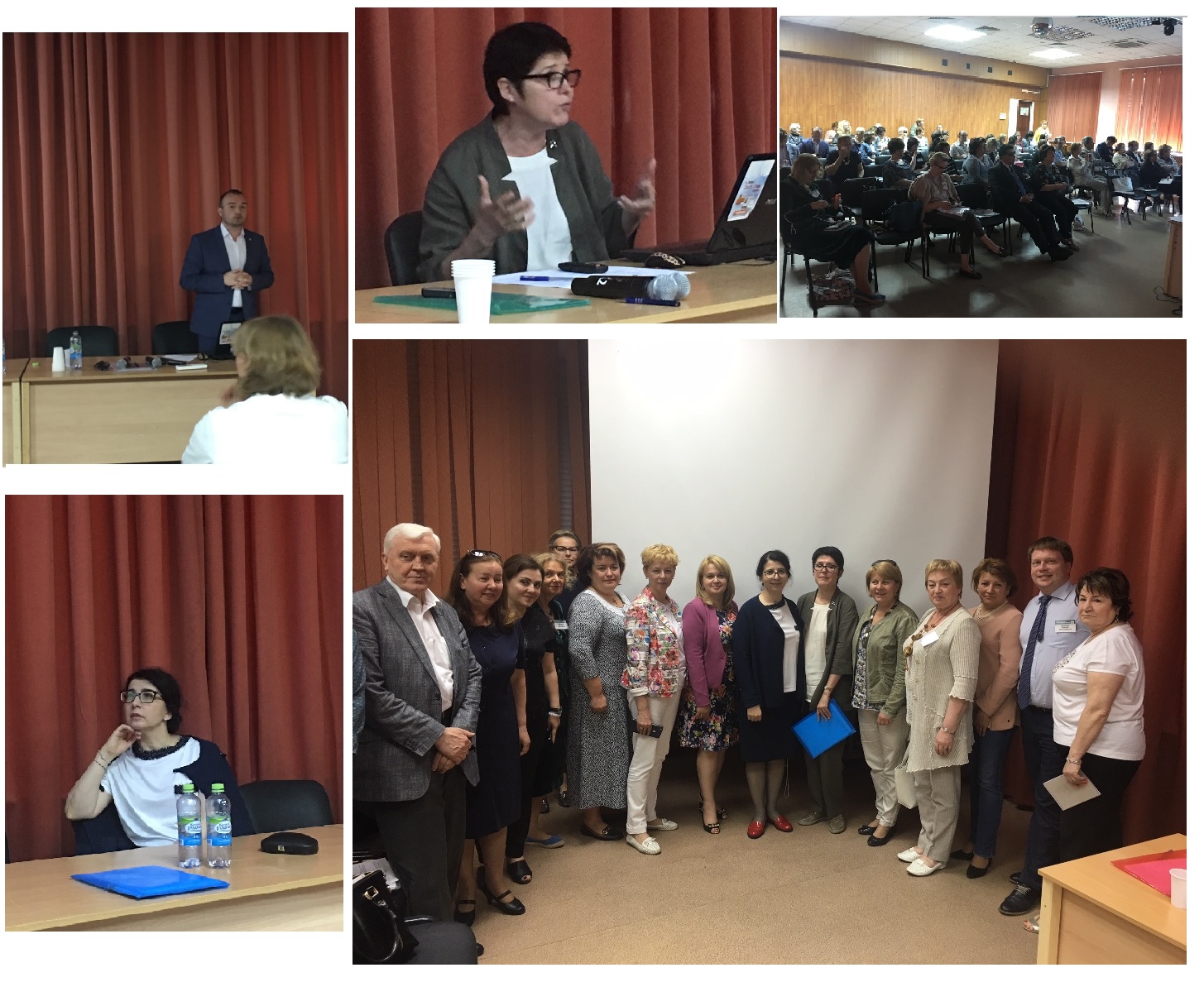- РУС
- ENG
The seminar organized by the Russian Classical Universities’ Association and Moscow State University
On May 24-25, 2018 the Russian Classical Universities’ Association (RCUA) and FSBEI of HE M.V.Lomonosov Moscow State University (MSU) held an information and methodology seminar for vice-rectors of the universities under the theme: "Designing higher education programs for developing research and teaching activities, underpinned by the introduction of the industrial qualifications framework and professional standards."
About 100 people participated in the event (representatives of more than 40 classical universities, of 15 Federal Educational and Methodological Associations (FEMA), Deputy Deans of MSU.
The presentations of Lemka Izmaylova, NAA’s Director, on the strategic issues of quality assurance of HE in Russia and Elena Efimova, NAA’s Deputy Director, on the topical issues of state accreditation of study programs aroused a considerable interest among the seminar’s participants.
L.Trubina, MSU Vice-Rector, and E. Egorova, Head of the Department of the Moscow Pedagogical State University (MSPU), introduced to the participants a draft of the pedagogical module for the programs of classical university education. On May 21, the module was considered and successfully approved by FEMA "Education and Pedagogical Sciences". This module had been developed during the last two years on the initiative of RCUA and MSPU (Saratov State University, Crimean Federal University, Bashkir State University and MSU were also closely involved in the module development).
A.Serova and M. Bershadskaya, the representatives from the National Research University of Higher School of Economics (HSE), introduced the extremely important methodological developments on designing and assessment of universal graduates’ competences specified by the Federal State Educational Standard 3++. A. Fomkin, representative from the Russian Presidential Academy of National Economy and Public Administration (RANEPA) and V. Malandin, Director of the Educational and Research Center for Priority Research and Problems in Scientific and Pedagogical Staff’s Training, MSPU, shared the valuable experience in delivering postgraduate programs. D. Venediktov, Director of the Centre for Inclusive Education, RANEPA, informed the participants about the successful practice of inclusive education organization for disabled people.





